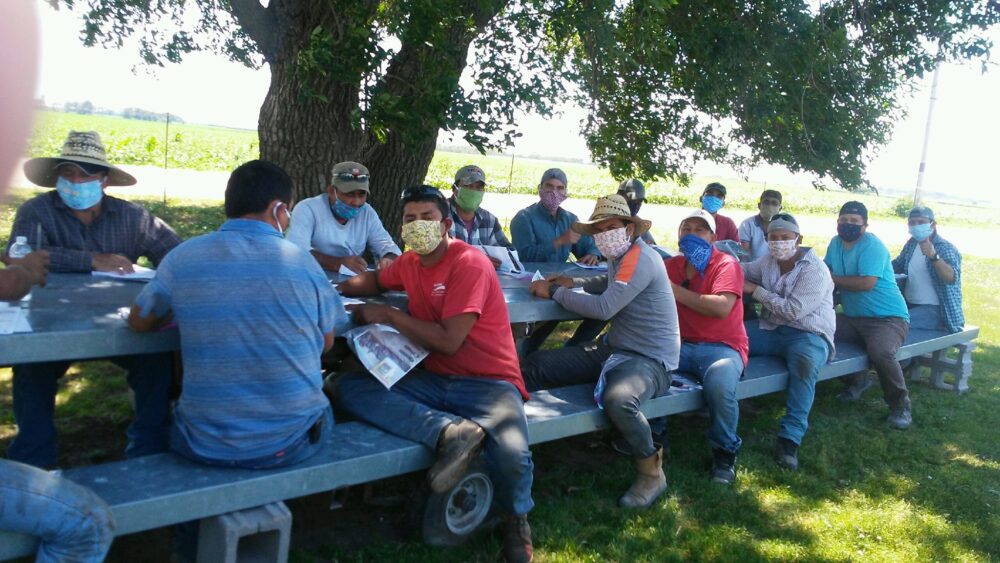Proteus Inc. is collecting face masks, providing free testing, educating workers on prevention, and helping coronavirus survivors with follow-up services, through a new initiative it began in March.
The Des Moines-based nonprofit has already provided masks for 2,000 of the estimated 7,500 migrant farmworkers throughout Nebraska, Indiana and Iowa. Their top goal is to receive enough donated masks to provide at least two to every farmworker in the three-state area.
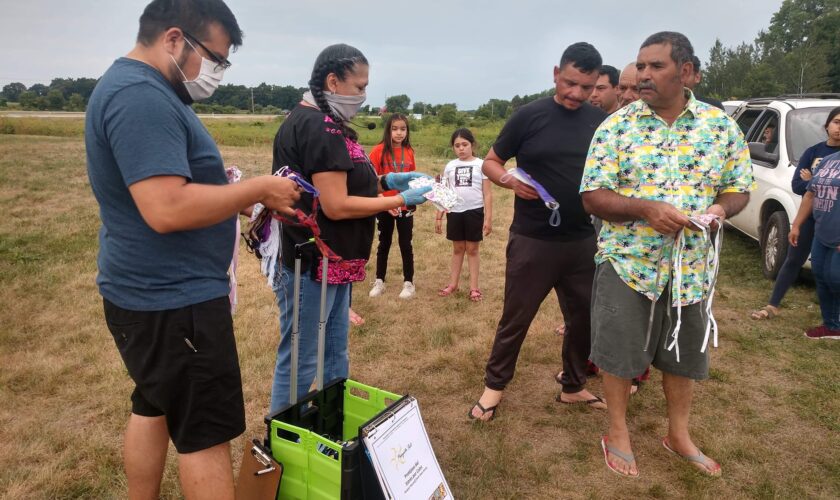
“Farmworkers are essential workers. They contribute to supporting the food supply chain, agricultural economy, and help put food on our table,” says Daniel Hoffman-Zinnel, CEO of Proteus. “Farmworkers deserve access to face masks in order to protect themselves and their families while still being able to work.”
Proteus began to collect masks for farmworkers after the rise of coronavirus infections in meat-packing plants throughout the Midwest in March, said Daniel Hoffman-Zinnel, chief executive officer.
Almost 90 percent of coronavirus cases in meat processing plants throughout 21 states involved black, indigenous, or people of color, reports the Centers for Disease Control. Migrant workers in general face higher risks of coronavirus because they often travel and live in large numbers, and in confined spaces, Hoffman-Zinnel said.
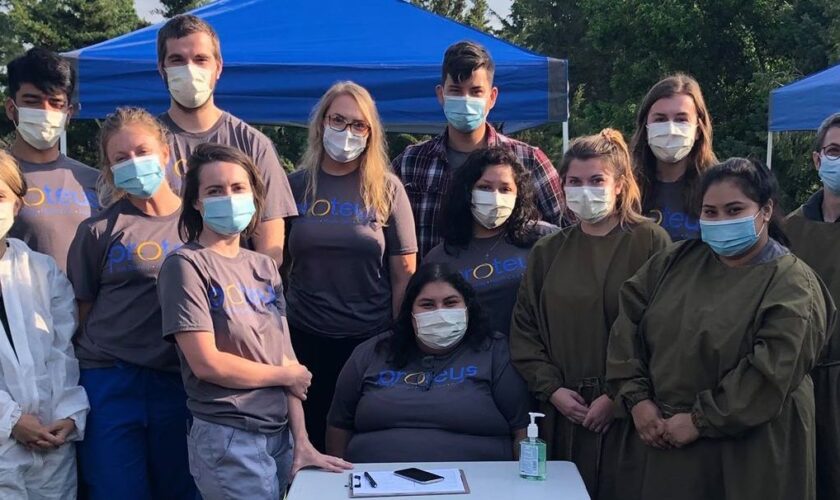
If you’d like to donate face masks, you can mail them to Proteus Inc., at one of the five mailing addresses listed in the link below. You can also physically drop off the masks, but are asked to call ahead to arrange your dorp-off. at. Proteus has offices in Des Moines, Fort Dodge and Iowa City in Iowa; and in Lincoln, Neb., and Kokomo, Ind. Find drop-off addresses here; donors are asked to call ahead before delivering their masks.
Proteus also provides instructions on how to make masks at home, for those who want to go the extra mile. It is encouraging online posting of masks, and information about its mask drive, using the hashtag #facemasks4farmworkers
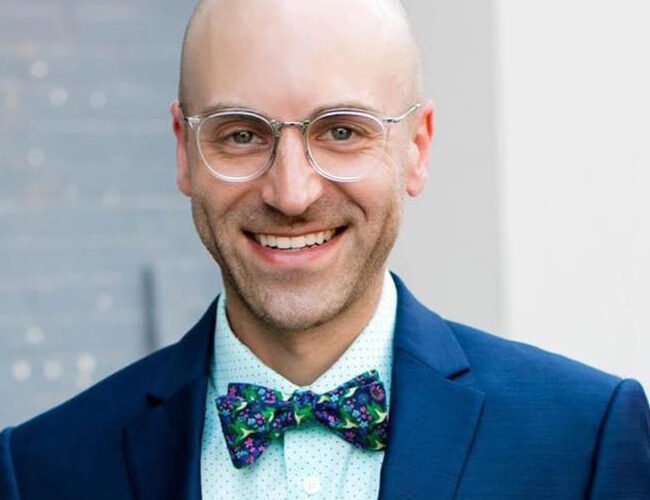
Proteus has also begun to provide free coronavirus testing to farmworkers, who often do not receive testing from their employers or cannot afford one on their own. So far, Proteus has helped 700 workers with testing.
How to slow the spread of coronavirus is now part of Proteus’ annual education program, which already covers topics like heatstroke and pesticide protection.
For workers who test positive, Proteus provides human resource services like support with housing, food, medical care and follow up testing.
Testing positive for coronavirus can be complicated for farm workers and their families. An estimated 49 percent of American horticulture workers are not legally authorized to work in the United States, reports JBS International. That means they don’t qualify for services like education, unemployment benefits and health care.
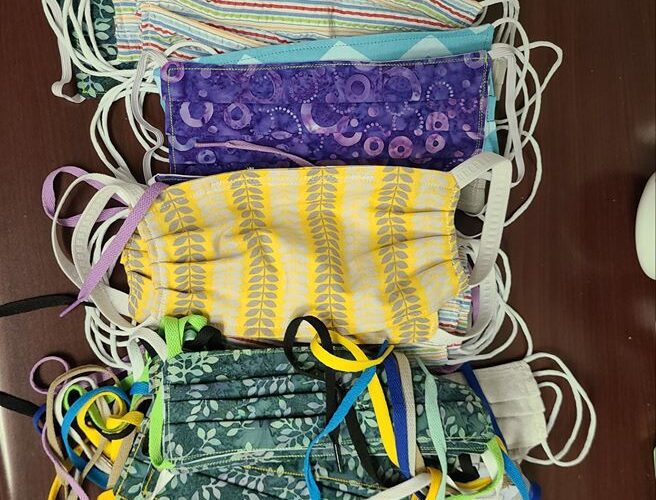
Proteus has been involved with providing $131,000 in aid to 167 families by partnering with The American Friends Service Committee Iowa and Al Exito. The three are part of The Central Iowa Immigrant Emergency Support Fund, a program launched in April to help immigrant families who do not qualify for government assistance.
Proteus was founded in 1999 and has helped more than 75,000 farmworkers with support for basic needs like food, education, access to health care, job training and more.
To learn more about Proteus, Inc.’s mission, go to its website or to its Facebook page.
(Cheryl Weatherford wrote this article. Christine Hawes contributed.)

